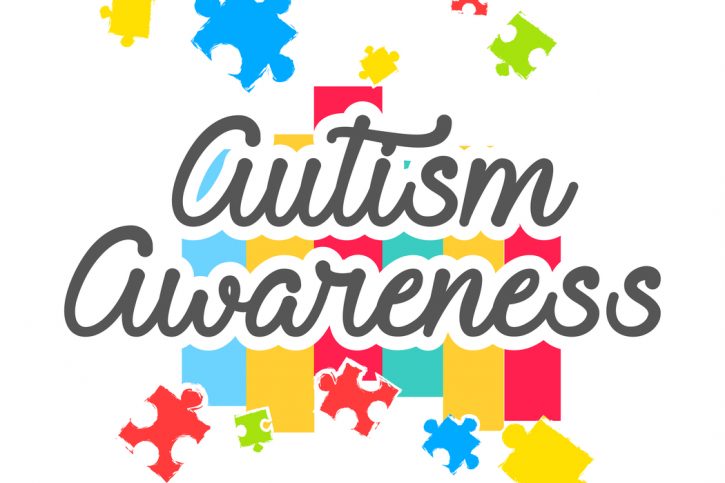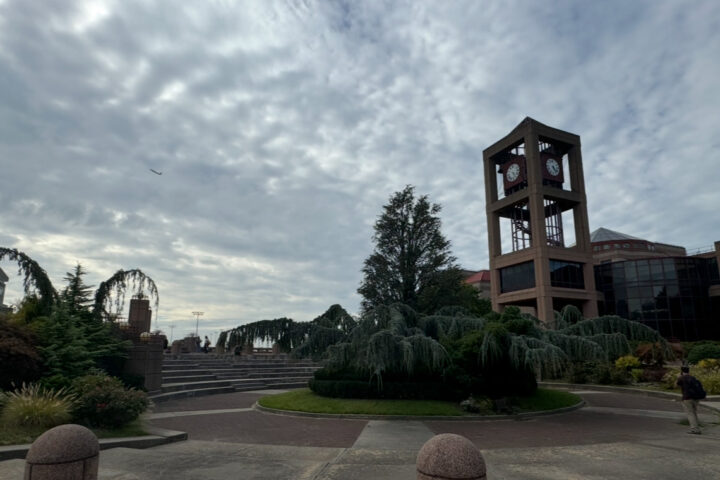In a speech enlivened by an attack on a plastic water bottle and a game audience members were required to take part in, author and autism activist Rupert Isaacson dramatized the kinds of frustrations that are experienced by autistic children and their parents.
Isaacson, who is the father of an autistic son, Rowan, told his Queens College audience he was upset because many of the professionals who are supposed to know about autism were unable to provide him with clear and concise information about the condition and how to deal with it.
He asked the audience members to stand and come to the front of the room, where he divided them into two groups. Each group was asked to walk past the other without bumping into each other, and to say say three French words when they passed in the middle of the room. Next, each group was asked to meet in the middle of the room, to say the three French words, and to do a silly dance. Finally, each group was asked to meet in the middle, say three French words, do a silly dance, and sit on the floor for a second. Afterwards, when they were back in their seats, Isaacson asked the audience members to repeat the three French words he had taught them.
“This is how autistic children learn,” Isaacson said, “ when they’re in motion.”
Isaacson spoke on Nov. 9 in the Aaron Copland School of Music, a guest of the Queens College Horse Boy Club, a sub-group of the Committee for Disabled Students.
He told the audience about Temple Grandin, a professor of animal science at Colorado State University, who became a consultant to the livestock industry after devising a more humane method to euthanize farm animals who are destined for slaughter. Dr. Grandin, who is autistic, advised Isaacson to spend more time with his son out in nature. Accordingly, at nature camps run by The Horse Boy Foundation, which was written about in a previous edition of this newspaper, autistic children have interactions with animals and are required to move rather than sit in a room with a professional.
Isaacson’s son Rowan, said the word “herring” while riding a horse, Isaacson said. Soon after, to help his son learn the letters of the alphabet, Isaacson began writing letters on trees, and had numerous people wear silly hats to teach Rowan to count.
Everyone has dreams, Isaacson said. “The secret to human happiness is service. Put your dreams into one more vulnerable person than yourself, he said.
To illustrate what can happen to people’s dreams, he threw an empty water bottle on the floor, stomped on it several times, then kicked it aside. Life will sometimes step on our dreams, he said, but the dreams are still there, inside the water bottle. In order to grow, those dreams need to be nurtured.
Nikolas Schultz, president of the QC Horse Boy Club, said “When my friend Sarah and I went to Isaacson’s ranch it changed us. It was there that we knew we had to start the QC Horse Boy Club.”
QC Horse Boy Club is in the midst of it’s first semester here at QC, with a mission that correlates with that of the Horse Boy Foundation, to dispel the notion that learning is about suffering, and to promote the idea that leaders are created through an education that is best suited to their learning styles. The QC Horse Boy Club aims to spread awareness about neurodiversity, while creating a college community that is conscious of all of its members’ needs.
Angela Vohra, a member of the Committee for Disabled Students, said her visit to the Horse Boy ranch in January, which was written about in this newspaper, inspired her to attend the event.
This was Isaacson’s third visit to Queens College. His books, “The Horse Boy: A Memoir of Healing” and “The Horse Boy: A Father’s Miraculous Journey to Heal His Son,” are available now.












